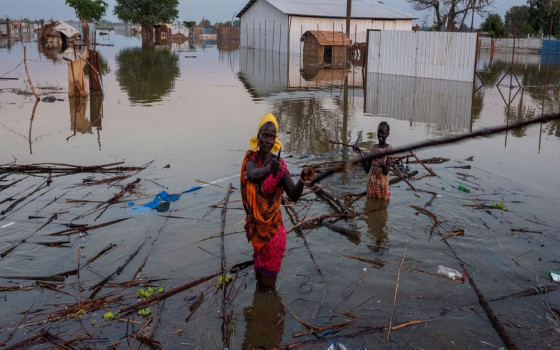
UN officials call for solutions to climate change, biodiversity loss and pollution

- Europe and Arabs
- Friday , 1 March 2024 12:22 PM GMT
New York - Nairobi: Europe and the Arabs
The UN Secretary-General called for redoubling efforts to find solutions to combat climate change, biodiversity loss and pollution, and renewed the call for urgent action to accelerate the just transition from fossil fuels to renewable energy sources.
This came in a video message broadcast yesterday, Thursday, at the opening of the high-level segment of the sixth session of the United Nations Environment Assembly, held in the Kenyan capital, Nairobi, from February 26 to March 1. According to what was stated in the daily United Nations news bulletin, a copy of which we received on Friday morning
The United Nations Environment Assembly is the world's highest decision-making body on environmental issues and aims to help restore harmony between people and nature. Held every two years, UN member states have the opportunity to collectively address critical environmental issues facing the planet. Representatives from more than 180 countries participated in this year's session to negotiate resolutions on issues ranging from nature-based solutions to highly hazardous pesticides, land degradation and drought.
"Our planet is on the brink. Ecosystems are collapsing. Our climate is collapsing. Humanity is responsible," the Secretary-General said in his video message.
He explained that the repercussions of all this - from poisoned rivers to rising sea levels - are harmful to us all, pointing out that the parties least responsible for climate change are the ones who suffer most from its repercussions, which is considered a "gross injustice."
Fulfilling the promise of sustainable development
He also called on governments to benefit from the new Loss and Damage Fund, which would help compensate vulnerable countries struggling to cope with losses and damages resulting from climate change.
António Guterres called on governments to work together to combat the crises resulting from climate change with the aim of putting the world on a sustainable path, advancing sustainable development and “to adapt to extreme weather and achieve climate justice; control pollution; and protect and restore ecosystems.”
He also urged the governments of developed countries to fulfill their pledges regarding financing his stimulus plan to save the sustainable development goals. The plan calls for increasing the resources available to combat the current economic crisis, by at least $500 billion annually through expanding lending. The amount may reach more than $1.8 trillion.
The Secretary-General also stressed the need for governments to work together to reach a new treaty on plastic pollution, referring to the historic decision taken by the Environment General Assembly at its fifth session to end plastic pollution and conclude a legally binding international agreement during the year 2024.
Plastic, paper, wood, metal, and other manufactured materials can be found on beaches all over the world and in all depths of the ocean.
Sustainable environment
As for the President of the United Nations General Assembly, Dennis Francis, in his speech at the opening of the high-level segment, he focused on the relationship between a healthy environment and achieving the sustainable development goals. He said: "For years, we have known that a healthy environment is a basic requirement and a key enabler for a safer, more just and more prosperous tomorrow."
Although the Sustainable Development Goals provide a blueprint for a more just and equitable future for both people and the planet, Dennis Francis warned that these goals are “unfortunately far away” from the deadline set for achieving them by 2030. He added: “Given that we are facing an emergency environment and the consequent need to act urgently, we must ensure that the outcomes of the sixth session of the United Nations Environment Assembly advance the human right to a clean, healthy and sustainable environment.”
Health is in danger
As for the Director of the World Health Organization, Tedros Adhanom Ghebreyesus, he spoke about the close, yet fragile, link between the health of humans, animals and the environment. He said that if the planet were a sick person, “he would be admitted to intensive care,” and therefore it is not surprising that human health also suffers. For example, he said, frequent and severe weather events cause deaths and injuries, increasing heatwaves contribute to an increase in cardiovascular disease, while air pollution leads to lung cancer, asthma and chronic obstructive pulmonary disease.
Climate change is also leading to shifts in the behavior, distribution, movement, range and density of mosquitoes, birds and other animals that spread infectious diseases such as dengue and malaria to new areas. Furthermore, illegal wildlife trade also increases the risk of the spread of zoonotic diseases that could lead to a pandemic, highlighting the importance of primary prevention to reduce risks.
“Threats to health from climate change, pollution and biodiversity loss are not hypothetical future risks. They are here and now, making health the most urgent reason for climate action,” he added. Dr. Tedros called for the transformation of energy, transportation, food and health systems, adding that "we must transform ourselves in particular, to break out of our blocked thinking patterns and work towards an effective, comprehensive and sustainable multilateral effort."


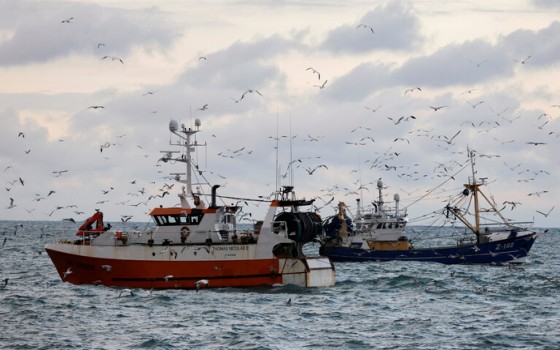

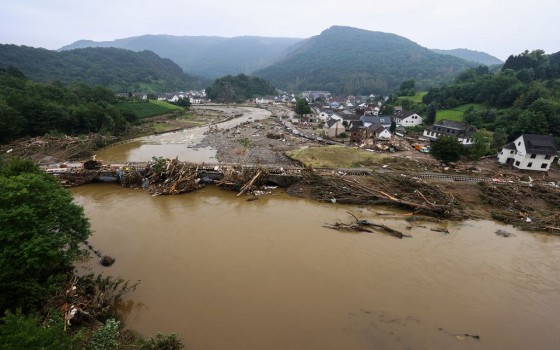
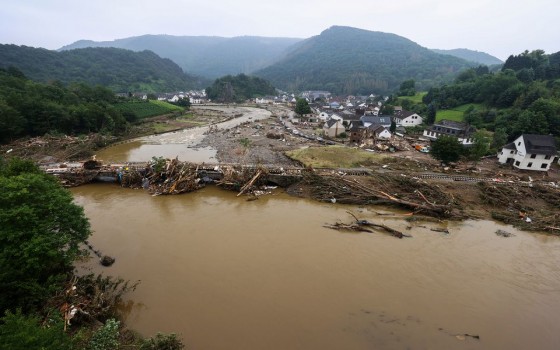


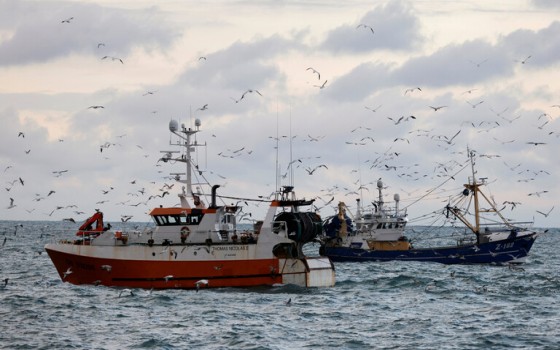



No Comments Found